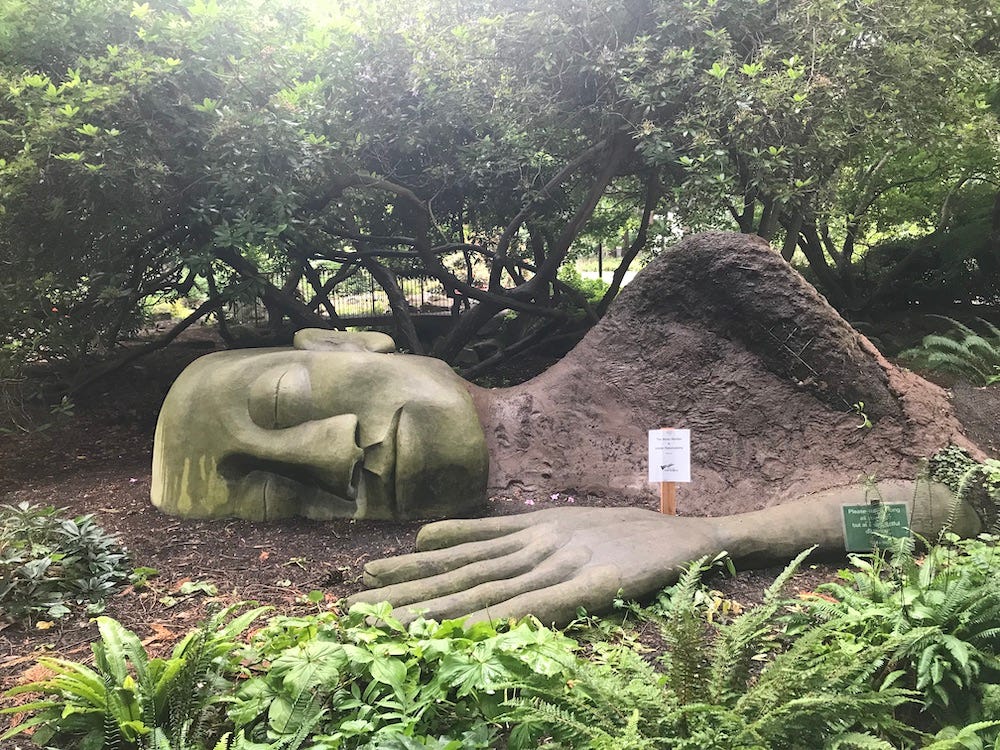Last week, I wrote about how rest is essential for liberation. But what does it really mean to rest? In the past, I always thought it was primarily about relaxing the physical body (and maybe the mind, to some extent).

Then I stumbled upon the Rest Quiz, created by Saundra Dalton-Smith. This comprehensive questionnaire explored rest from a much more holistic perspective. Which makes sense… even though it’s pretty easy to understand (and measure) physical exertion and sleep, we expend energy in many other ways, too.
When I received my quiz results by email, I was given scores for seven different categories of rest:
Physical: The most obvious category of the bunch, encompassing things like sleep, exercise, and manual labor.
Mental: This one is also kind of a no-brainer (ha!). Many of us are familiar with… um… very active mental chatter. Taking a break from the inner monologue every now and then sure feels good.
Spiritual: This category was a little harder for me to wrap my brain around. The Rest Quiz refers to God a lot, a word I still tend to bristle at, even though I have found a lot of solace and joy lately in spiritual pursuits. (More on this topic to come.) But, that aside, what does “spiritual rest” even mean? Like, needing a break from praying too hard?? Not quite—“rest” in this case can be thought of as shorthand for “restoration.” Spiritual rest(oration) through meditation, prayer, and community involvement can give way to a deep sense of belonging, love, and acceptance. It can also allow our greater purpose to come into focus.
Emotional: Anyone else out there feeling the constant drain of emotional labor? As a parent (and a person socialized as female), I spend a lot of energy managing not only my own emotional world, but helping others navigate their own. This work is largely invisible and unrecognized (for most of my life, I didn’t even realize I was doing this), but it sure does take a toll! My results showed that this category of rest was seriously lacking for me, but it also seems like one of the more challenging areas to address. Dr. Dalton-Smith defines emotional rest as “the freedom to authentically express feelings and eliminate people-pleasing behaviors.” Yeah, definitely not an easy task. Working on it!
Social: As an introvert, I definitely appreciate the need for social rest. Importantly, though, this category is not about avoiding social interaction altogether. Instead, it’s about recognizing that not all social interactions are equally draining. All of us, regardless of our degree of intro- or extroversion, have relationships that enliven us… and ones that exhaust. Having some awareness of this can help us find a better balance in how we spend our social time and energy.
Sensory: This world is full of so much loud, intense, in-your-face sensory input! We all have different tolerance levels for various kinds of sensory stimulation, yet (speaking for myself here) I rarely register this consciously as something I need rest from. But it can be so valuable to carve out quiet moments where our sensory organs aren’t being bombarded with information.
Creative: As Dr. Dalton-Smith defines it, creative rest is “the experience of allowing beauty to inspire awe and liberate wonder.” This beauty can come from the natural world, or from art, or whatever random things stir up that feeling of enchantment within you. Obviously, I’m a big fan of this one!
I took this quiz a while back and thought it was interesting enough, but it wasn’t until more recently that I realized how useful this framework could be.
For the past few weeks, I have been dealing with plantar fasciitis in my left foot, which needs physical rest in order to heal. But one of my go-to ways of getting mental rest is by taking long walks, and because I haven’t been able to do that as much, I keep waking up in the middle of the night with my thoughts racing, unable to get back to sleep. So, one aspect of my physical rest (sleep) is being negatively impacted by my lack of mental rest.
But this prompted me to think about the other ways I get mental rest, so I can shift to those activities while recreational walking is off the menu. I’ve tried to step up yoga a bit, but I find it frustrating to constantly adapt poses so as not to strain that still-healing foot. Oddly enough, doing the dishes is one of my other mental rest activities—it allows my brain to wander as I settle into the routine task, scrubbing away grime and letting the warm water wash it all away. However, this one is definitely best in small doses and I’m not exactly eager for more dish-doing time!
So, I haven’t found my way out of this one yet, but I might try to do a short 5- to 10-minute freewrite before I go to bed just to clear things out before I sleep. Maybe that will help? I also want to hit the roller rink more often, because skating doesn’t seem to irritate my foot too much. All of which is to say: having this framework has helped me pinpoint the root issue, and identify possible solutions, much more quickly than I otherwise would have.
What do you think—do you find it helpful to divide rest into categories like this? Does it illuminate anything for you, or does it seem overly complicated? Let me know your thoughts in the comments!





I find that framework helpful. There are many things that we need to tend to in order to properly care for ourselves and these categories of rest cover at least most of those aspects of our being.